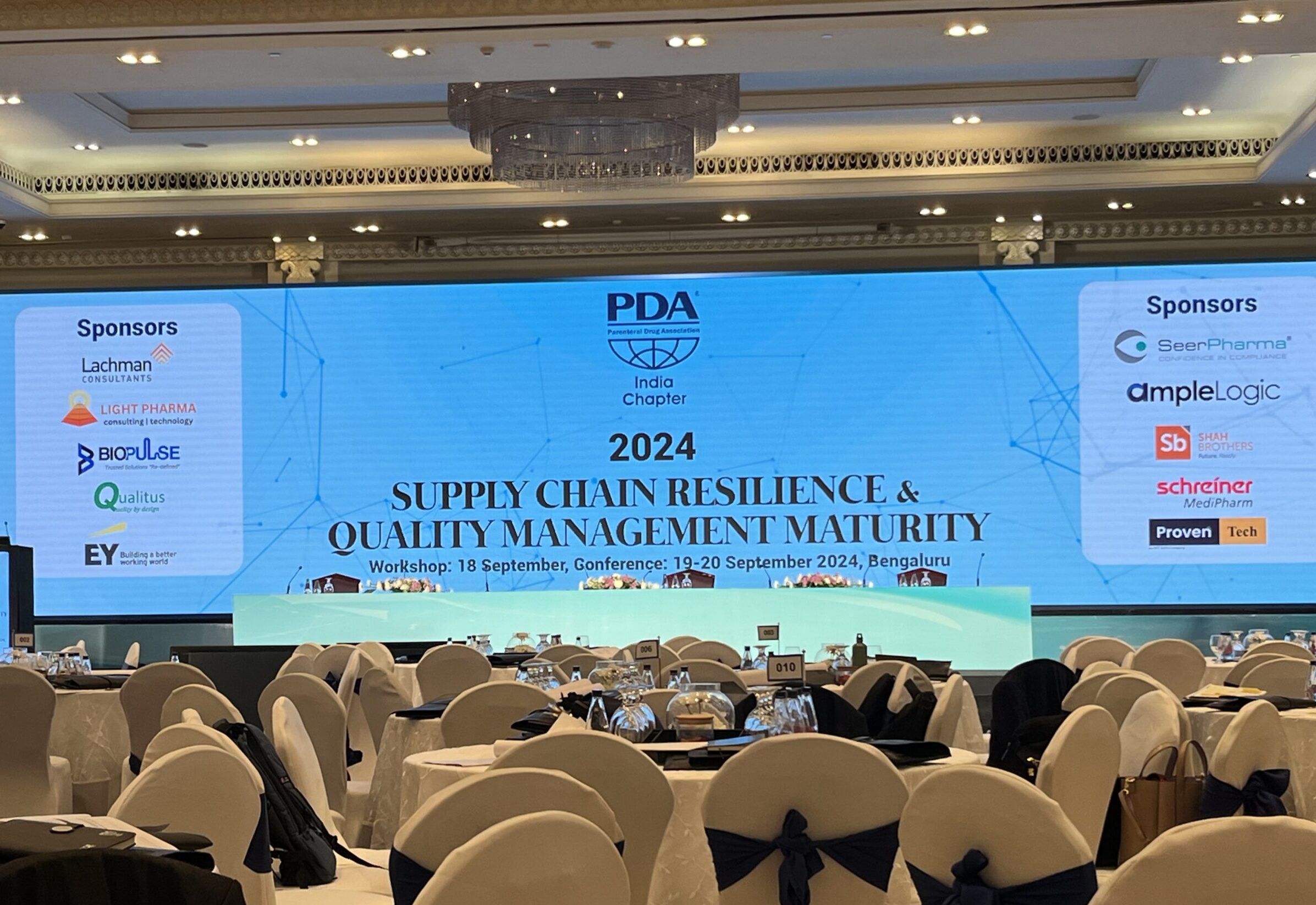From September 18 to 20, 2024, I was pleased to attend the PDA India Chapter conference on Quality Management Maturity and Supply Chain Resiliency, and I was impressed with the number of people who took three days out of (what must be) busy schedules and demanding jobs in the Indian pharmaceutical industry to attend.
To recap the principals of QMM, the Center for Drug Evaluation and Research (CDER) has established a program to encourage manufacturers of drugs (including biologics), with the stated purpose of implementing QMM programs to:
- Foster a strong quality culture mindset.
- Recognize establishments that have advanced QMM practices and acknowledge those that are striving to improve QMM practices.
- Identify areas of improvement for QMM practices and provide suggestions for improvement; and
- Minimize risks to product availability to ensure market supply of needed drugs.
The FDA is performing prototype assessments in the following areas:
- Management Commitment to Quality
- Business Continuity
- Advanced Pharmaceutical Quality System (PQS)
- Technical Excellence
- Employee Engagement and Empowerment
Many of the speakers at the conference spoke about Technical Excellence. What the FDA means by Technical Excellence is defined in CDER’s Quality Management Maturity (QMM) Program: Practice Areas and Prototype Assessment Protocol Development. Some of the elements are:
- Effectively managing information and data, including understanding the needs, capabilities, and limitations of operations, investing in learning, and adopting new technical skills.
- Implementing innovative manufacturing processes or solutions to problems.
- Using advanced technologies that are fit for purpose.
Talk among the participants focused on bringing the latest technology into facilities. While this is an important step, as seen above, “Technical Excellence” means more than just the bright and shiny new toys. For example, companies need to make sure that the technology is fit for purpose. Does it meet “your” needs as an organization? We have seen technological solutions implemented at significant costs that simply don’t solve the problem or issue so the company is forced into work-arounds or manual solutions. Companies also need to make sure that they understand the technology and that they have people knowledgeable within their organizations who can manage, troubleshoot, configure, etc. the technology. Countless times Lachman has gone into companies and asked for something, such as an audit trial, and the SME needs to call the original equipment manufacturer (OEM) to obtain it. Other times, we have asked why something was configured in a certain way only to be told that was the way the OEM configured it and they haven’t changed it to fit the purpose for them. The OEM doesn’t know your business and needs intimately; relying solely on them is problematic and could lead to compliance issues and downtimes, the antithesis of QMM and Supply Chain Resiliency.
If you need help in this area specifically, or generally with implementing a QMM program, reach out to Lachman for an assessment at LCS@LachmanConsultants.com.



